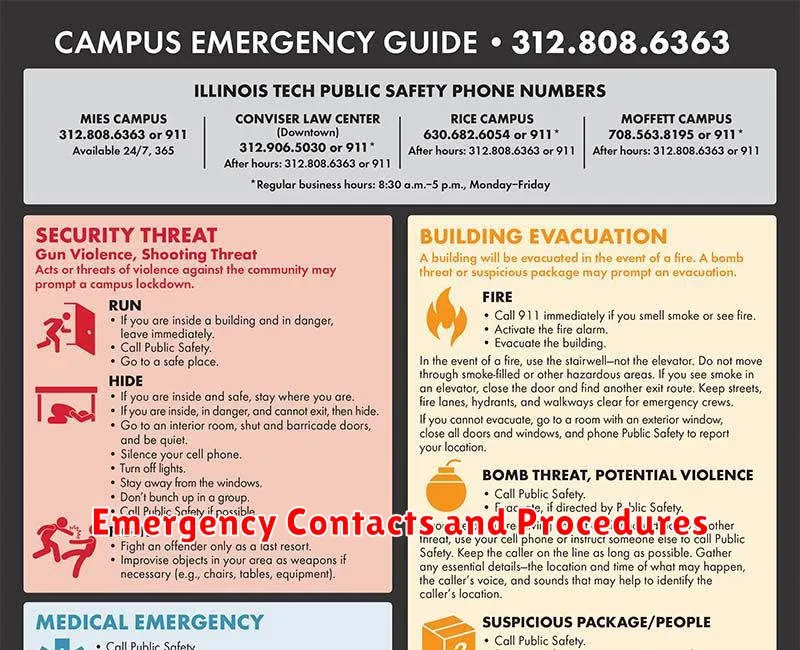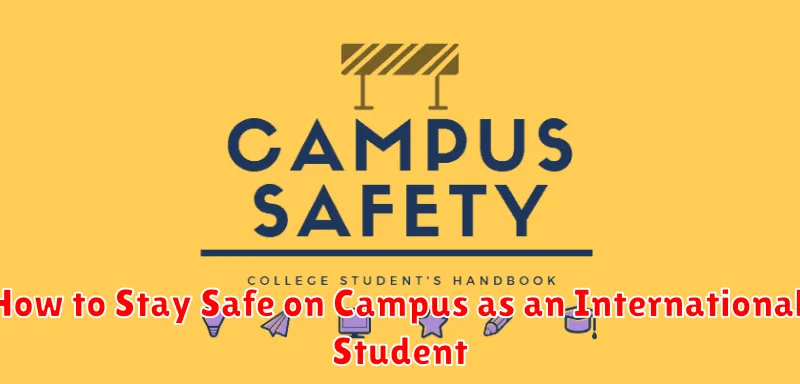Embarking on a journey as an international student is an exciting opportunity filled with new experiences and academic pursuits. However, navigating a new environment, especially on a bustling campus, requires awareness and preparation to ensure your safety and well-being. This article provides essential guidance on how to stay safe on campus as an international student, covering topics from personal safety measures and campus security resources to cultural awareness and health considerations. By understanding the potential challenges and implementing the suggested strategies, you can create a secure and positive experience throughout your academic journey. From understanding campus security protocols to navigating cultural differences, we’ll equip you with the knowledge and tools to thrive in your new academic home.
Prioritizing your safety and security is crucial for a successful and enriching experience as an international student. This guide offers practical tips and resources to help you navigate campus life confidently. We will delve into essential aspects of campus safety, including personal security measures, utilizing campus resources, understanding local laws and regulations, and fostering cultural sensitivity. Whether you are concerned about campus security, personal safety, or cultural adaptation, this article will empower you to proactively address potential challenges and create a secure environment for yourself on campus as an international student.
Get Familiar with Campus Security
Campus security is your first line of defense in case of emergencies. Locate the security office and understand their services. Learn how to contact them quickly, whether through a dedicated phone number, emergency app, or physical locations.
Familiarize yourself with the security protocols for different situations, such as fire alarms, lockdowns, or suspicious activity. Knowing what to do can be crucial.
Emergency Contacts and Procedures

In case of an emergency, immediately contact campus security or local law enforcement. 911 is the general emergency number in the United States.
Familiarize yourself with the campus emergency procedures. This information is usually available on the university website or in student handbooks. Locate the designated assembly points on campus maps.
Program your phone with important numbers: Campus security, your international student advisor, and your country’s embassy or consulate.
Stay Alert in New Surroundings
As an international student, navigating a new campus and city is an exciting yet potentially overwhelming experience. Be aware of your surroundings at all times. This is especially important during the first few weeks as you familiarize yourself with new routes and locations.
Avoid distractions like using your phone while walking, particularly at night or in less populated areas. Stay aware of who is around you and trust your instincts. If a situation feels unsafe, remove yourself from it immediately. Report any suspicious activity to campus security or local police.
Use Well-Lit Paths at Night
Prioritize well-illuminated walkways and paths when traveling at night. Avoid shortcuts through dark or isolated areas. Campus safety is paramount, and brightly lit areas deter potential threats.
If a well-lit path isn’t available, consider contacting campus security for an escort, especially if you feel uneasy.
Secure Your Personal Belongings
As an international student, safeguarding your belongings is crucial for a smooth experience. Always lock your dorm room, even when stepping out briefly. Consider using a high-quality lock for added security.
Keep valuable items like laptops, passports, and cash in a secure location. Utilize available resources, such as lockers or safety deposit boxes, if provided. Register expensive electronics with campus security to aid in recovery if stolen.
Be mindful of your surroundings, especially in public areas. Avoid leaving your belongings unattended. When studying in a library or common area, keep your valuables within sight and reach.
Avoid Sharing Personal Information
As an international student, it is crucial to protect your personal information. Be mindful of what you share, both online and offline.
Avoid publicly posting details like your address, phone number, financial information, or class schedule. Be cautious about sharing personal details on social media. Carefully consider the privacy settings on your accounts.
Be wary of individuals who ask for excessive personal information. If something feels wrong, trust your instincts and report any suspicious activity to campus security or the appropriate authorities.
Know Your Rights as a Student
As an international student, you have the same rights as any other student on campus. You are protected against discrimination based on your nationality, ethnicity, or immigration status.
Familiarize yourself with the student code of conduct and your university’s policies regarding academic integrity, harassment, and disciplinary procedures. Understanding these policies will help you navigate any challenges you may face.
You have the right to a safe and inclusive learning environment. Report any instances of discrimination or harassment to the appropriate university authorities.
Utilize Campus Safety Apps
Many universities offer campus safety apps specifically designed to enhance student security. These apps often include a variety of essential features.
Emergency alerts provide real-time notifications about potential threats or critical incidents on campus. GPS tracking can assist friends or campus security in locating you if needed. Mobile bluelight functionality simulates a physical bluelight station, allowing you to quickly contact campus security in an emergency.
Familiarize yourself with the features of your university’s safety app and ensure it is installed and configured correctly on your mobile device.
Join Orientation Programs
Orientation programs are essential for international students. They provide crucial information about campus resources, safety procedures, and cultural adjustment. Attending these programs will help you understand campus policies, emergency contacts, and available support systems.
These programs also offer a great opportunity to connect with other international students and familiarize yourself with the campus environment. Learning about the local culture and customs will contribute to a smoother transition and enhance your overall safety and well-being.
Build a Reliable Social Circle
A strong social network enhances safety and well-being. Actively participate in orientation programs and campus activities to meet fellow students. Join clubs or organizations related to your interests.
Establish connections with other international students for shared experiences and support, while also befriending domestic students to gain valuable insights into the local culture.
Maintain regular communication with your social circle. Sharing your schedule and whereabouts with trusted friends adds an extra layer of security.

